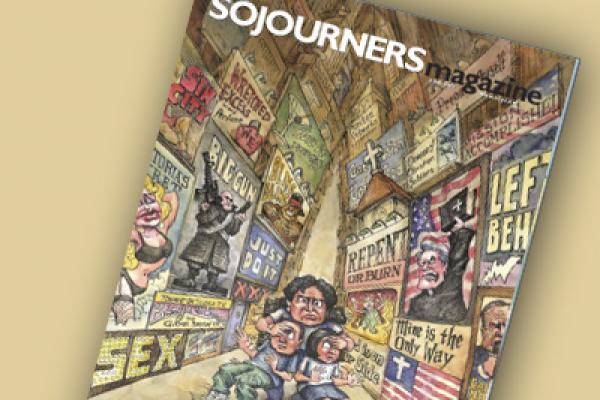When Gerald Liu followed his friend to the front of a Southern Baptist church during an altar call, the then-12-year-old had an unusual motive. "He was my ride home," says Liu. "I didnt want to get stranded." So began the now-26-year-old youth directors journey into the Christian faith.
In this post-election year, pundits and politicians are weighing in on evangelical Christians and the "moral values" vote. But making sense of evangelicals in politics requires more than political commentary. It also requires theological sensitivity. Some of the best people to comment on conservative Protestant evangelicalism in American politics are young adults, because they have lived these traditions and reflected on them critically and compassionately.
Sojourners interviewed seven men and women, ages ranging from 24 to 40, who share this theological sensitivity. All come from - in their words - conservative and evangelical Protestant backgrounds. Several continue to call themselves evangelicals. Others have left for mainline denominations, and one has left the institutional church entirely. We asked them to talk about their early religious experiences and to assess the 2004 election in light of those experiences.
SAVED FOR SERVICE. Regardless of their current denominational affiliations, the seven agreed that growing up evangelical included learning that Christian conversion leads to engagement in the world. But this outlook came with a challenge: Be in the world, but not of it. Striking that balance wasnt always easy.
Read the Full Article

